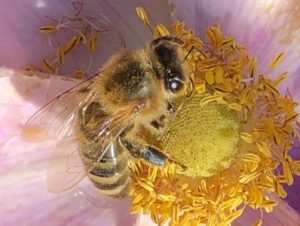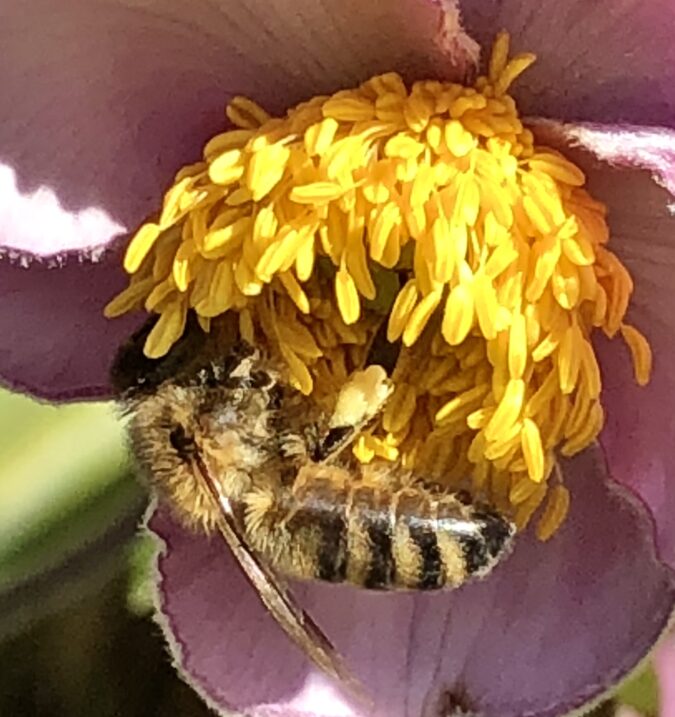The bee ‘microbiome’.

The honey bee, Apis mellifera, stores food in the form of bee bread. Bee bread is formed through the fermentation of a mixture of pollen, nectar and bee saliva. It is 'inoculated' with a range of bacteria and yeasts that ferment the material after storage in the comb cells of a hive. Bee bread is the chief protein resource for bees, particularly for the feeding of larvae [and adults].
As it is a nutrient-rich material, it ‘supports’ various microorganisms, despite its acidic nature and low water content. Bee bread is also coated with propolis. Propolis (sometimes called ‘bee glue’) is a resinous substance collected by bees from tree bark and leaf buds. This resin is ‘chewed’, mixed with salivary enzymes and the partially digested material is mixed with beeswax. It is an antimicrobial substance. It is used by bees to seal holes in their honeycombs and help in the construction of the hive. The very nature of bee bread and the coating of propolis create a ‘challenging environment’ for microbes to grow and survive.
 However, despite the ‘unwelcoming’ nature of bee bread, several species of fungi and bacteria form a microbiome within a hive, and are thought to play an rôle in the life of the bees. Recent studies have revealed that the fungus Aspergillus flavus is well adapted to survive in bee colonies. A strain extracted from a hive was found not only tolerate low pH (which other strains of the fungus could not cope with) but could also deal with the low water content of bee bread, and with the propolis - which is thought to have anti-fungal properties.
However, despite the ‘unwelcoming’ nature of bee bread, several species of fungi and bacteria form a microbiome within a hive, and are thought to play an rôle in the life of the bees. Recent studies have revealed that the fungus Aspergillus flavus is well adapted to survive in bee colonies. A strain extracted from a hive was found not only tolerate low pH (which other strains of the fungus could not cope with) but could also deal with the low water content of bee bread, and with the propolis - which is thought to have anti-fungal properties.
Further work demonstrated that this strain of the fungus had mutations that allowed it to develop within the ‘bee bread environment’. That this fungus can live with the bees suggests that there might be some form of mutual benefit to both fungus and bee, but the relationship (if there is one) is not as yet understood.
Full details of this study can be found here
Comments are closed for this post.
